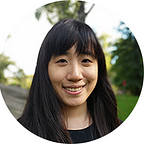My grandfather proposed a theory to me the other day.
Here’s a rough translation:
活动 (huo dong). It’s the Chinese word for “movement”.
The first character, 活, means life.
The second character, 动, means “to move”.
Isn’t it wonderfully wise?
To live, you must move.
This came up in a conversation in which my grandfather and I exchanged morning routines.
I have been struggling with my mornings, for various reasons. Some mornings, I feel like I’m so tired that I can’t and don’t want to get up or do anything at all (I suspect that this was because my body was doing crazy things, I wanted a solution, and it wasn’t a problem that I could solve in this lifetime. Wanting something to be different when it is out of your control is a very good way to suffer). There are also days that I wake up completely dry, with a migraine and what I like to call a “raw hot rotten feeling” in my stomach or chest. It’s simply not what I normally call pleasant, and so, I start my mornings with a reminder of how gross I feel and how gross the day could be.
Getting out of bed was hard, and involved a lot of work. I noticed that I never felt “in my body” until I breathed deeply — and then, it felt as though I would get lighter, slowly, in different parts of my body. It was like I woke up dense every morning, and struggled to breathe life back into me.
I asked my grandfather what he did in the mornings.
He explained. I don’t remember his exact routine, but it was a perfect morning routine. Wake up. Pat down body. Get up, wash face. Taiqi. Go for a walk of a thousand steps. Calligraphy. A simple breakfast of porridge. Go for another walk of a thousand steps.
And so on.
“I do the same thing every morning. Without fail. Every morning, day in, day out. You are worse at moving when you are old like me, so I do whatever I can. I pat down my body. I walk. I bicycle kick in the air, like a baby again.”
I asked, in wonder, “How the hell do you do it every morning?”
“Discipline,” he said.
“How do I get that?” I asked.
“You’re young. Life is different for you— you have other priorities, other stimuli, things to do. But when you’re old like me, you don’t have things to keep you busy. You stop moving if you’re not careful. You have to have discipline and keep moving.”
Otherwise, he said, you end up like those elderly people who suffer an injury, are bedridden, and pass away shortly after. There are many stories of that — of people who are unable to move, losing their lives.
“To live, you must move,” he said. “Moving is living; living is moving.”
I wondered if, for whatever reason, I’ve been experiencing what those who are older feel in their bodies. Everything hurts; everything is slow. My body feels like an engine in the cold of winter. It is tempting, in the cold, to stop moving. But you must move, whatever you can manage, because movement is the key to life.
